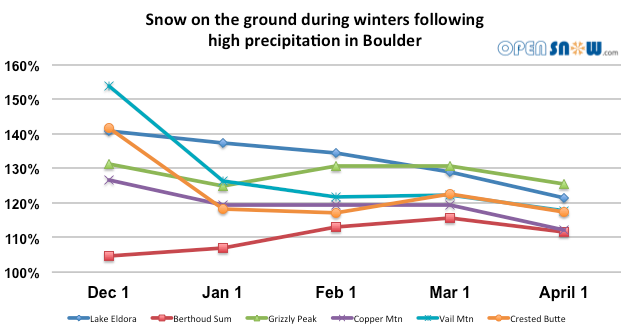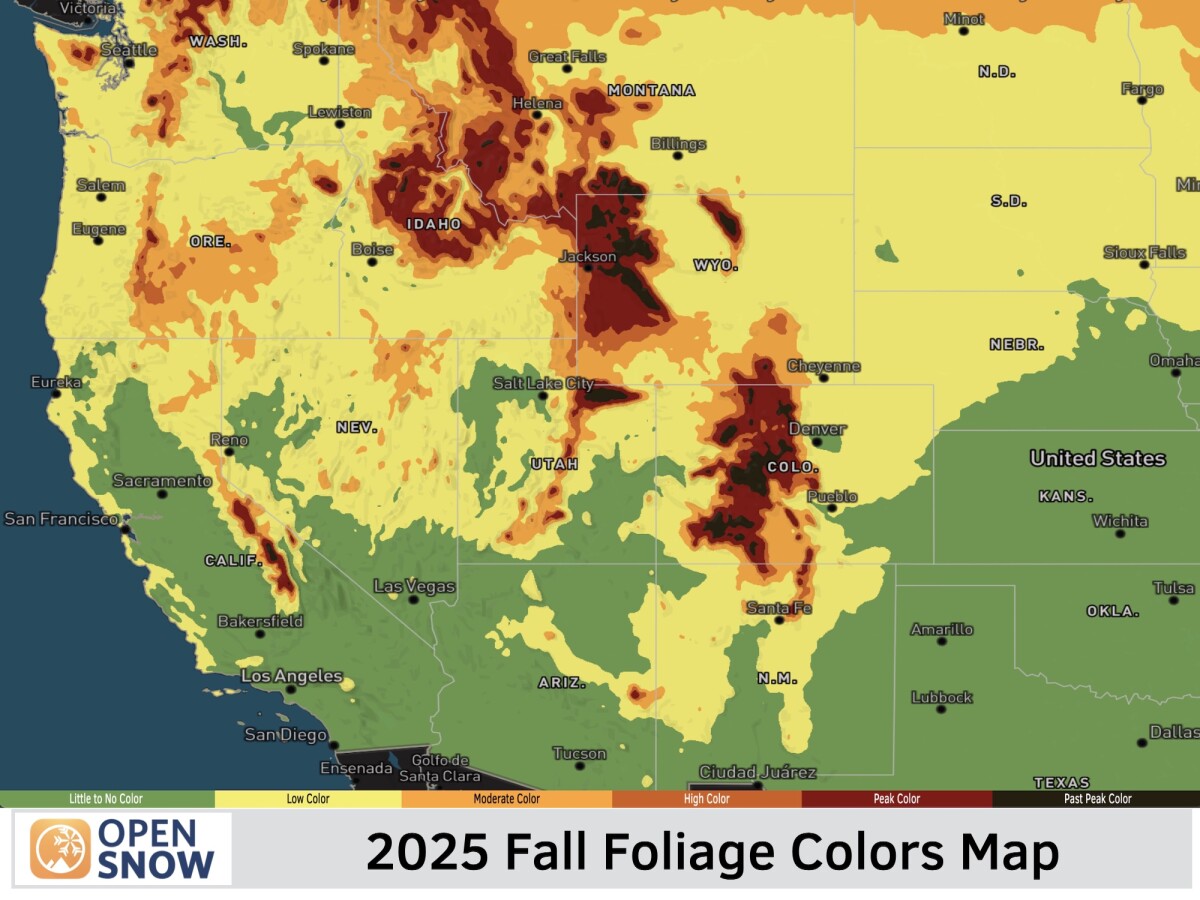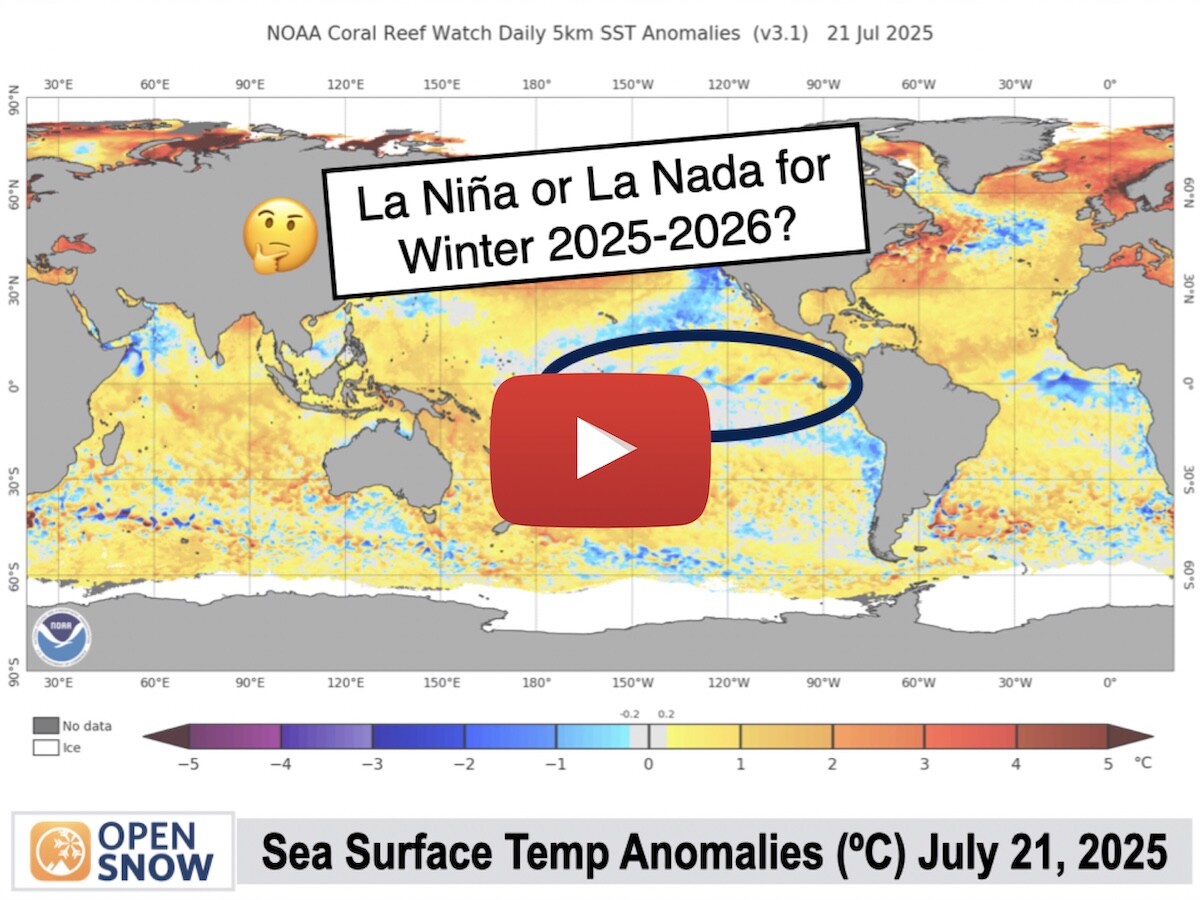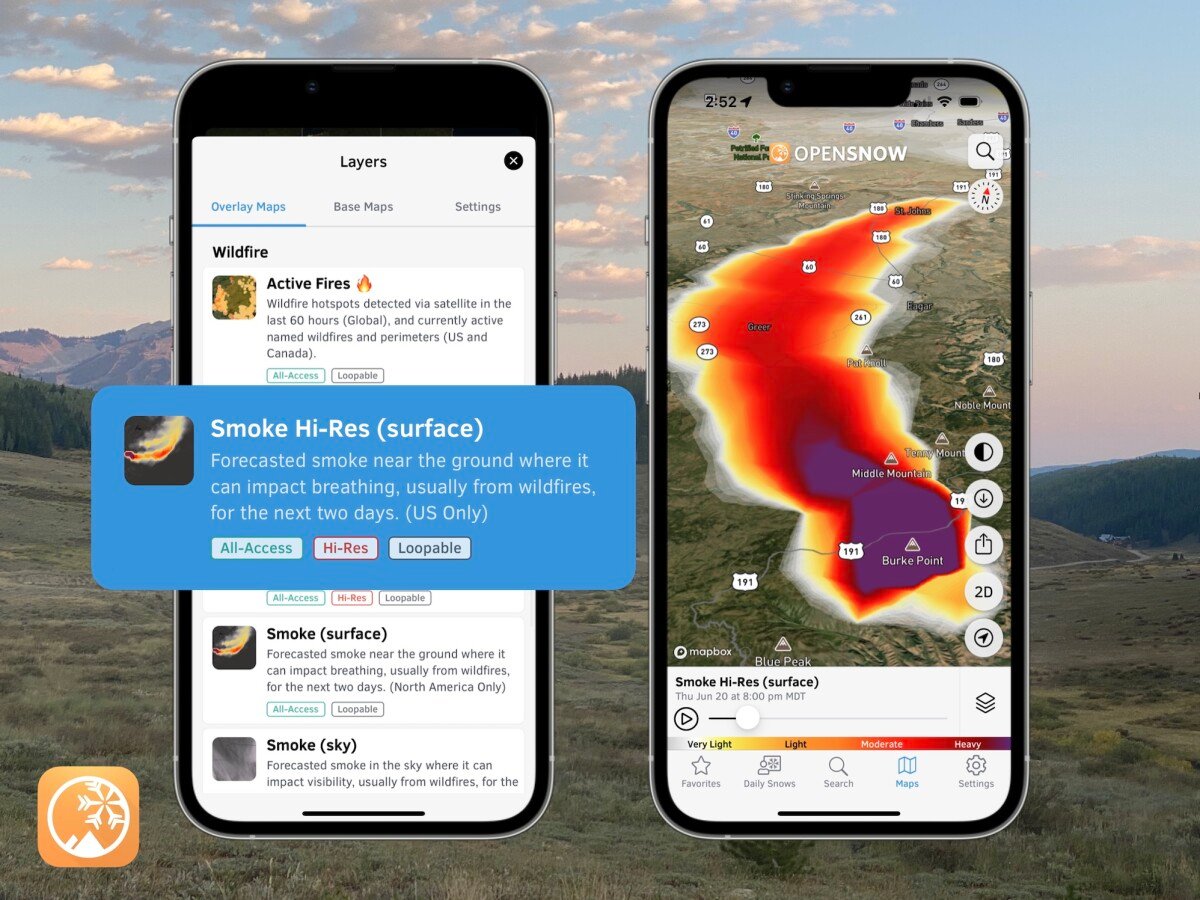News

By Joel Gratz, Founding Meteorologist Posted 11 years ago October 11, 2013
Colorado's seasonal forecast for 2013-2014
Seasonal forecasts stink. Sorry, but that's the truth. I have never seen anyone or any company produce consistently accurate winter forecasts year after year.
That said, there is a correlation between El Nino or La Nina and snowfall in the United States. If there is a strong El Nino (warmer than average water in the central Pacific), then there is usually more snow in the southern 1/3rd of the US. If there is a strong La Nina (cooler than average water in the central Pacific), then there is usually more snow in the northern 1/3rd of the US.
However, it appears that there will not be an El Nino or La Nina this winter. Instead, we'll see nearly average water temperatures in the central Pacific, which is affectionately nicknamed La Nada.
Without an El Nino or La Nina, we have very little confidence in any seasonal forecast.
However, there might be another clue. We can look at the current weather during the summer or fall, compare this with past years, and if we find any matches to past years, we can look at snowfall during those seasons as a clue to how much snow we'll see this season.
After the flooding in the front range during early September, many people asked me if there was any correlation between precipitation in Boulder (and surrounding areas) and snowfall in the mountains during in the winter. I looked into the data, and was amazed that there is a correlation.
In the five wettest Septembers in Boulder history, the snowfall during the ensuing winter was above average for central and northern Colorado (I haven't studied southern Colorado just yet).
Succintly, in the winters following a wet September in the front range, snowfall in the Colorado mountains is well above average before December 1st, then stays about average through the remaining months of winter. There is no guarantee that this winter will follow the trend, but the data points in this direction.

I hate seasonal forecasts because they don't help you to score powder days and they're also mostly wrong. But I'm glad the data is pointing to an average or above average season ... let's hope it works out!
JOEL GRATZ
About The Author




